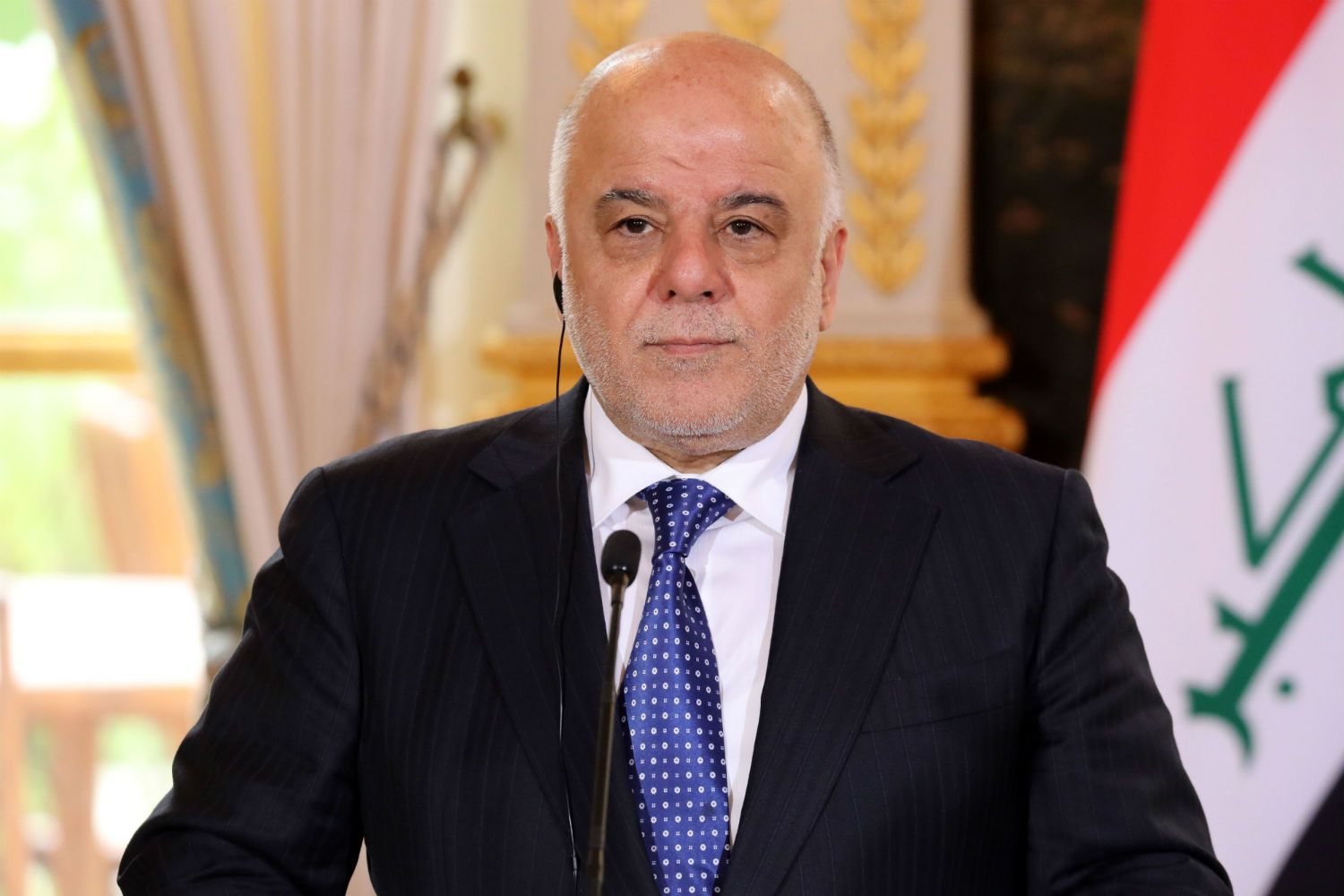Iraqi Premier to Visit Iran After Agreeing to Comply With US Sanctions

EghtesadOnline: Iraq’s Prime Minister Haider al-Abadi is to visit top trading partner Iran as well as Turkey next week, an official said on Saturday, days after Washington slapped new sanctions on Tehran and piled economic pressure on Ankara.
Abadi “will head to Turkey on Tuesday and Iran on Wednesday to discuss economic affairs with the two countries”, the official said on condition of anonymity, AFP reported.
Iraq is the second-largest importer of Iranian non-oil products, buying some $6 billion (€5 billion) worth of goods from its eastern neighbor in 2017.
It also buys Iranian-generated electricity in efforts to deal with chronic power cuts that have been a key factor sparking mass protests in recent weeks, Financial Tribune reported.
Abadi on Tuesday said Iraq would reluctantly comply with sanctions against Tehran, which took effect the same day.
It came after the administration of US President Donald Trump unilaterally withdrew from a landmark 2015 nuclear deal between Iran and world powers.
“We don’t support the sanctions because they are a strategic error, but we will comply with them,” Abadi said.
Later on Sunday, he commented that the Iraqi stance on the US sanctions against Iran serves nobody but the Iraqi people, Iraqi News reported.
“The Iraqi stance towards the US sanctions against Iran was not taken incidentally or hastily, but it was taken to maintain the interests of Iraq and the Iraqis,” reads a press release by spokesman for Abadi’s media office, Saad al-Hadithy.
Baghdad is allied with Washington, but it also has strong ties to Tehran.
“While there are sanctions on Iran, it will be difficult to preserve the trade relations [with Iran],” Iraqi government spokesman, Saad al-Hadithi, has been quoted by Middle East Monitor as saying.
Caught in the crossfire between its key allies Tehran and Washington, Iraq’s economy could suffer the heaviest collateral damage from the US reimposing sanctions against Iran.
For Iraq, which has recently emerged from an expensive war on militants, the embargo on its neighbor could hit jobs and cut off a crucial source of cheap imports.
In 2017, Iraq imported around $6.6 billion (€5.7 billion) worth of products from Iran, ranging from cars and washing machines to agricultural goods.
For the Iraqi consumer, Iranian goods have a big advantage: They are the cheapest on the market.
Imports paid in US dollars have already ground to a halt, as the Central Bank of Iraq has reportedly notified all banks in the country that using dollars with Iranian banks has been banned.
“To comply with the American sanctions, we’ve stopped imports of Iranian cars,” said a senior official in the auto import industry.
The official, who asked not to be named, said Baghdad had asked for an exemption from Washington to allow imports of Iranian spare parts for car assembly facilities in Iraq.
“Production has ground to a halt with 5,000 jobs on the line,” he added.
While Iraq’s exporters won’t feel too much of a pinch, as Iran only imported $77 million worth of Iraqi goods last year, tourism looks set to take a hit.
“The two or three million Iranian pilgrims who come each year [to Shia holy sites] represent a major economic activity that Iraq could now be deprived of,” warned Muzhar Mohammed Salah, an economic advisor to Iraq’s prime minister.
Abadi’s visit to Ankara is also overshadowed by a bitter row between NATO allies Turkey and the US.
Trump said on Friday he was doubling steel and aluminum tariffs on Turkey as part of an ongoing row over the detention of American pastor Andrew Brunson and other issues.
The row has caused the Turkish lira to crash, dropping 16% against the dollar on Friday.


